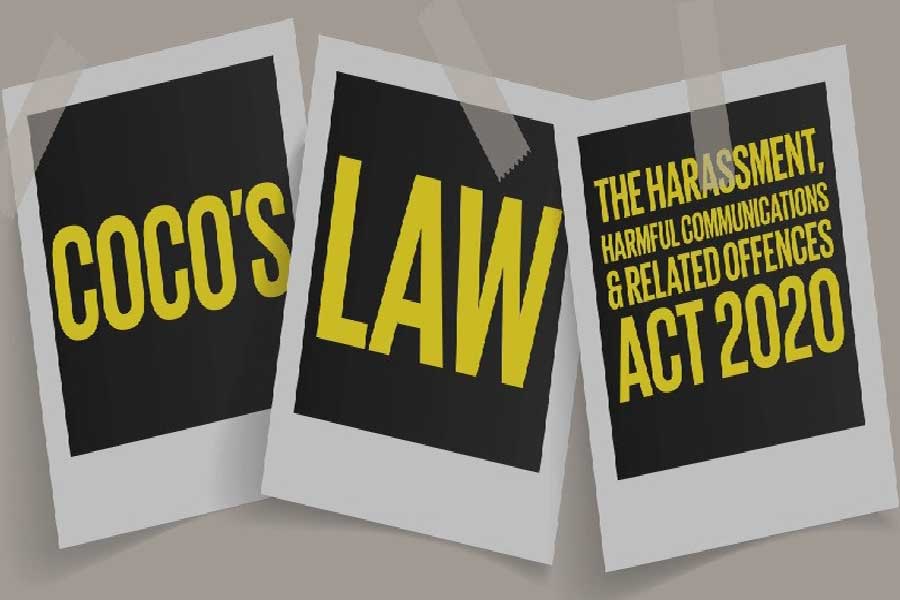Let’s Talk About
What does Sexual Consent mean?
Consent is where there is free and voluntary agreement to engage in a sexual act with someone else. It is a crime to engage in a sexual act with someone who has not given consent. This law is set out in the Criminal Law (Sexual Offences) Act, 2017.
A “sexual act” is described by law as:
- sexual intercourse (vaginal or anal)
- penetration of the anus or mouth by the penis
- penetration of the vagina by an object, or
- aggravated sexual assault
It is important to know that even if you consent to a sexual act, you are absolutely free to change your mind before the act begins or at any time before it ends.
The law protects people in certain situations who are not considered able to give consent, even if they have said “Yes”. For example, a person is not able to give free and voluntary consent if they are:
- forced, threatened with force or have a well-founded fear that force will be applied
- asleep or unconscious
- affected by alcohol or some other drug
- mistaken as to the nature and purpose of the act
- mistaken as to the identity of any other person involved in the act
- unlawfully detained at the time at which the act takes place
- a person with a physical disability which prevents them from communicating consent
- or if someone else consented on their behalf
There may be other situations where free and voluntary consent cannot be given but these are some of the most common.
To read the Criminal Law (Sexual Offences) Act, 2017 on consent and a range of other sexual offences, click here.
Consent In Practice

Consent to sexual activity requires communication to make sure you and your partner understand each other and are in agreement. Giving consent and asking for consent is all about setting your own personal boundaries and respecting those of the other person.
It is not okay for a person to pressurise someone else to have sex.
If someone asks you to have sex, you always have the legal right to choose; this includes choices around, if you have sex, when you have sex and what type of sex you want to engage in. This applies whether you have sex with a new or existing partner.
At any point, both you and your partner have the right to change your mind and withdraw consent.
Being sexually active with someone when they don’t fully understand and agree to what’s going on isn’t consensual sex.
Drugs and alcohol can affect a person’s ability to make decisions, including whether or not they want to have sex; this means they can’t give consent.
Neither can somebody consent if they don’t have the intellectual capacity to fully understand what they are being asked to do and the possible consequences.
Getting Consent

Many people think they know if their partner is consenting to sex by their behaviour, but in reality the only sure way to know is if you talk about it and they agree to have sex. It is also important to get ‘active, on-going consent’, even after someone has agreed to have sex with you.
You can do this by asking them:
- if they are ok to carry on.
- if there is anything they want to do or don’t want to do.
- if what you are doing feels ok.
- if they want to stop or change activity.
Even if someone verbally agrees to sex but their body language is signalling something else, you should stop and check in with them. Examples of body language that can mean someone isn’t comfortable with what is going on can include:
- pulling or turning away from you.
- their muscles stiffening.
- not responding to your touch.
If there is any confusion on your side or you are not sure if your partner wants to carry on then you should stop immediately and talk about it.
Sexual activity should be consensual and pleasurable.
If you and your partner are concerned about your mutual enjoyment, it is more likely that you will want to check in with each other to make sure that the activity is working for you both. For more information on the law around sexual consent and the circumstances in which people cannot be said to have consented see the section on Consent and the law.
Consent and Chemsex

Consent should be at the centre of everything that happens at a sex party. Many people use drugs to enhance their sexual experience and feel able to give consent while using them. Using drugs for sex can also shift the lines of what you might want or not want to do.
Keeping in control of consent is really important to ensure it’s an enjoyable experience for everyone. Figure out what substance and dose works for you and commit to that amount. Before attending a sex party, check in with yourself to make sure you’re in the right state of mind to keep that commitment to yourself. You’re more likely to enjoy yourself when you not only feel comfortable and safe but are also contributing to the overall positive experience of other party-goers.
What if I was passed out?
If you were intoxicated or passed out, you cannot consent to sex. Just because you were drinking or doing drugs does not mean you consented to sex. However, sometimes sex happens without consent.
If this happens to you should:
Know it is not your fault.
It is not your fault that someone chose to ignore your refusal to give consent, did not stop when you withdrew consent or took advantage of you when you were unable to give consent. You have the right to get support and help.
If you want to talk about or have any questions about consent or chemsex, the MPOWER team of peer sexual health outreach workers offer information, support and resources relating to HIV, STIs and sexual health & wellbeing needs, including consent. MPOWER have also created a Sex Party First Aid Kit which gives advice on harm reduction, consent and what to do in an emergency.
Further supports are listed at the bottom of the page.
Legal age of Consent

What is the legal age of consent?
The law says that a person must be 17 years of age to be able to consent to engaging in a sexual act. This means that a young person under the age of 17 is not legally old enough to consent to a sexual act even if they want to. Remember, it is a crime to engage in a sexual act with someone who has not, or cannot, give consent.
The age of consent is the same for all persons, regardless of gender or sexual orientation.
The law recognises that younger people may be engaging in sexual activity with each other and has introduced a ‘proximity of age’ defence. This is sometimes called the “Romeo and Juliet Defence”.
This means that if a person has been charged with an offence of engaging in a sexual act with a child who is 15 or 16 years of age he or she can put forward a defence but only if all of these conditions apply:
- he or she is younger or not more than two years older than the child
- agreement was given freely and voluntarily
- neither party felt exploited or intimidated
- neither person is a person in a position of authority
It is a serious offence for a person who is, or has previously been, in a position of authority over a child, to engage in a sexual act with a child or young person who is under the age of 18 (regardless of the fact that the legal age of consent is 17). Such a young person can never legally consent to engaging in a sexual act with a person who is, or who has previously been, in a position of authority over them. A full list of persons considered to be in a position of authority is set out in the law, which includes, for example, family members, carers, teachers and sports coaches.
Sexting or sending nudes
It is illegal for anyone (whatever their age) to post, send or share pictures of the genitalia of people under 18, or images of them engaged in sexual activity, as this is classified as child pornography. This is true even if a person under 18 sends a sexual picture of themselves. It is also illegal for someone to show pornography to a person under 18
The Law
To read the Criminal Law (Sexual Offences) Act, 2017 on consent and a range of other sexual offences, click here.
Coco’s Law

Ireland now has laws that make sharing or threatening to share someone’s nudes without their consent a crime. The punishment for this crime includes:
- An unlimited fine and/or up to seven years in prison if you meant to cause harm to the victim by sharing or threatening to share their nudes without their consent
- A maximum €5,000 fine and/or up to 12 months in prison if you did not mean to cause harm by sharing or threatening to share someone’s nudes without their consent
These laws apply even if the person initially gave consent for the picture to be taken, but they were later shared with other people without their consent.
Under the age of 18
- Remember, if you are under 18, a sexual image of you will be considered child exploitation material. This means that you and the person you send it too could be in some very serious trouble.
- Having a sexual picture or video of someone under 18 years of age, and sending that picture to other people, is illegal and can lead to criminal prosecution. Penalties can include jail time, a fine, and being added to the sex offenders register for at least two and a half years.
Support Services

It can be confusing to know what to do. There are a number of places to get help. These sexual assault services can help you decide what you need to do and give you emotional support.
Sexual Assault Treatment Units (SATU)
There are six Sexual Assault Treatment Units (SATUs) in Ireland. They provide specialist care for women and men aged fourteen years and over who have recently been sexually assaulted or raped.
Rape Crisis Network FREEPHONE: 1800 778888
Offer a confidential, 24-hour telephone helpline, 7 days a week staffed by trained counsellors who are available to listen to you and any concerns you may have in regard to issues of rape, sexual assault, sexual harassment or childhood sexual abuse.
Useful links
What is Consent?
https://spunout.ie/sex-relationships/relationships/what-is-consent
Sexual Health and Wellbeing
https://www.sexualwellbeing.ie/sexual-health/sexual-consent/sexual-consent/
Criminal Law (Sexual Offences) Act, 2017 on consent and a range of other sexual offences, click here.



